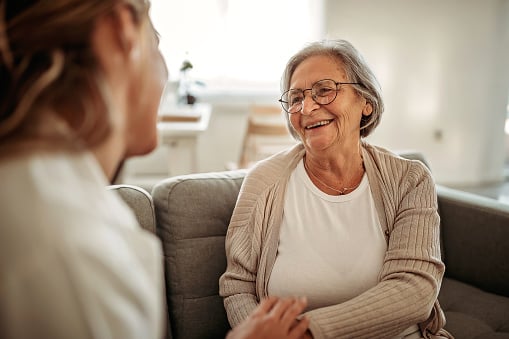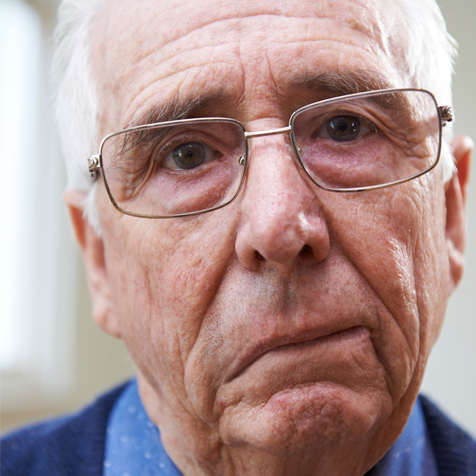What is AAC?
Augmentative and Alternative Communication (AAC) for Adults
Tags: Speech, Language, Communication, Support, Stroke, Caregiving, Brain Injury, talking, Communication Access, Speech therapy, Stroke recovery, Aphasia, Primary Progressive Aphasia
Care Partner vs Care Giver
Those caring for adults with speech, language, and cognitive challenges serve an important role in the healthcare management team. These challenges may be a result of medical diagnoses such as dementia, stroke, and ALS, or occur independently. No matter the etiology, support is often necessary to help individuals reach their goals. Due to the nature of this role, we are beginning to shift our perspective on how to most effectively refer to these individuals: care partner vs. care giver.
Tags: Speech, Language, Communication, Support, Stroke, Caregiving, Brain Injury, talking, Speech therapy, Stroke recovery, Aphasia, Primary Progressive Aphasia
Supported Conversations for Adults with Aphasia (SCA)
If you know someone who is recovering from a stroke or other acquired brain injury, you may have experienced a heightened level of difficulty when participating in conversations. Aphasia, or language difficulties as a result of a stroke, can impact a person’s ability to express themselves or understand information. This breakdown in communication can lead to feelings of isolation and distress.
Tags: Speech, Language, Communication, Support, Stroke, Caregiving, talking, Communication Access, Speech therapy, Stroke recovery, Aphasia
Stroke Recovery: Communication Tips for People with Aphasia
Take your time when speaking. Speak at your own pace. Even if your communication partner is speaking quickly, set your pace and take your time. Your message is important and deserves to be heard.
Tags: Speech, Language, Communication, Support, Stroke, Caregiving, Brain Injury, talking, Communication Access, Speech therapy, Stroke recovery
Morning Communication Activities at Home
You may find it challenging to access beneficial resources that allow you to properly care for your loved one. We have researched some at-home activities that encourage communication for adults who are recovering from a stroke or maintaining skills after a neurodegenerative diagnosis. These morning activities consist of routines that get you both up and moving and allow for independent participation.
Tags: Speech, Language, Communication, Support, Caregiving, Brain Injury, Voice, talking, Speech therapy, Stroke recovery
5 Self-Care Tips for Caregivers
As a caregiver, it is easy for us to overlook our own physical, mental and emotional needs as we care for others. This can quickly lead to feeling burned out, which would not be beneficial for us or our loved ones.
Tags: Communication, Support, Caregiving
Stroke Recovery: After the Hospital
Preparing to go home after a hospital stay is never easy, especially after having a stroke. It can be a very overwhelming process with new challenges in thinking, memory, and mobility. The length of your hospital stay after a stroke can range anywhere from a few days to months depending on the severity of the stroke and the support system in place at home. There are many feelings associated with going home, excited to be back home along with feelings of anxiety or worry.
Tags: Speech, Language, Communication, Support, Stroke, Brain Injury, talking, Speech therapy, Stroke recovery
Stroke Recovery: A Whole Life Approach
Welcome to the first of a blog series on stroke recovery resource information from Cleveland Hearing & Speech Center (CHSC). Topics of the series include first action steps following a stroke, benefits of speech therapy, communication strategies, tips for caregivers, and much more.
Tags: Speech, Language, Communication, Support, Stroke, Caregiving, Brain Injury, Voice, talking, Speech therapy, Stroke recovery
"Selective Hearing" - or Hearing Loss?
Very often, spouses and life-partners will suggest that their loved one has “selective” hearing – a self-made term indicating that they can hear perfectly fine most of the time, but tend not to hear their partner speaking. Is it simply a matter of “tuning out” – or could it be something else?
Tags: Hearing Aid, Hearing Aids, Communication, Hearing, Hearing Loss Prevention, Support, Hard of Hearing, Hearing Loss
Stroke and Depression Connection
After a stroke, the main focus for the patient, their family, friends, physicians, therapists and other health care professionals is often on their physical aspects. How far can the patient walk? Can the patient still get dressed with the use of just one hand? Can the patient safely swallow food and liquid without coughing or choking? Will the patient need to use oxygen after discharge to home? These are all issues that are visible and obvious.
Tags: Communication, Support, Stroke, Caregiving, Brain Injury
















